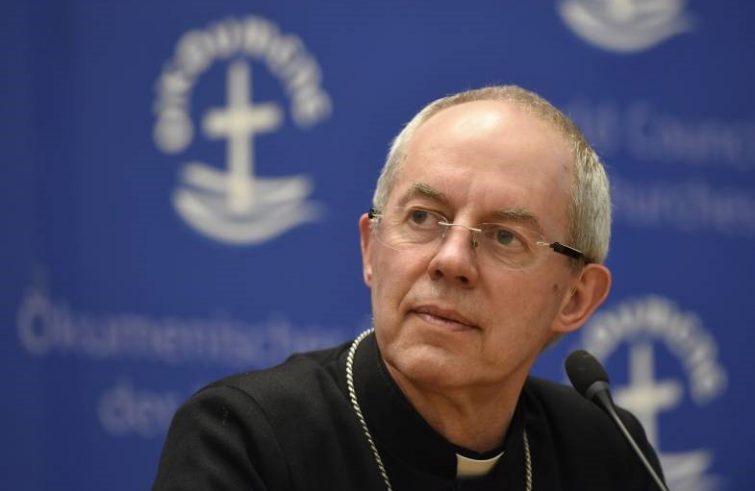
A deeply divided Synod for a Church facing the threat of a split.
That was the picture that emerged from the meeting of the Church of England’s governing body in York from 5 to 9 July. The items on the agenda ranged from abuse prevention and child protection to the stance on same-sex couples and same-sex marriage; from pro-life advocacy to poverty; from increasing poverty to building trust within the Church.
Abortion and disability. The Archbishop of Canterbury, Justin Welby, Primate of the Anglican Church, intervened in a panel discussion on a motion calling on parishes and dioceses to offer greater support to couples expecting children with disabilities. The Archbishop’s remarks were based on his own experience, as his 32-year-old daughter Ellie suffers from dyspraxia, a chronic condition that causes difficulties with motor skills.
Addressing the Synod, he explained that he and his wife were encouraged to terminate the pregnancy when medical screening revealed the little girl’s disability.
“We were under a lot of pressure to have an abortion,” he explained, “the physicians insisted that we have the tests that would reveal and confirm the potential disability of the foetus, and tried to make us understand that if there was a disability, they expected us to make an anti-life choice. They also warned us of the high financial costs of raising a disabled child.”
Abuse and child protection. The Church of England has disbanded its own ‘Independent Safeguarding Board’, the independent body set up to oversee the Church’s child safeguarding practices. It is now considering the possibility of
replacing it with two new independent bodies: one that would implement and monitor safeguarding measures and the other that would oversee the former’s activity.
Poverty. On the issue of poverty, the Archdeacon of Sheffield, Malcolm Chamberlain, tabled a motion calling on the bishops to lobby the British government to reassess the subsidies it gives to the very poor. “Britain is not such a poor nation that it is incapable of caring for its most vulnerable citizens,” Chamberlain told the Synod, while stressing that
“At this time, the churches and food banks are among the most important organisations ensuring the survival of the most deprived.”
Trust and Trustworthiness. Synod was also presented with a report entitled “Trust and Trustworthiness in the Church of England” by the Bishop of St Edmundsbury and Ipswich, the Rt Revd Martin Seeley. The prelate was asked to explore “How we can repair and sustain trust in our wider culture and structures”.
The authors of the report, compiled over a two-year period, denounced a climate of distrust within the Church of England,
stemming from the way it has dealt with issues such as racism, child sexual abuse and homosexual unions, as well as from an “indiscriminate use of social media that makes people stupid”.
Homosexual marriages. Despite the contrasting views, one topical issue that the Synod did want to explore was the question of same-sex marriages.
The three chambers of bishops, pastors and laity decided to move towards a ‘yes’ vote on same-sex marriages, which were legalised in the UK in 2014.
In addition, the prelates decided to take a major step towards the introduction of ” Prayers of Love and Faith “, i.e. tailor-made ceremonies to celebrate the stable union of same-sex couples who are civilly married under British law. Until now, gay priests in the Anglican Church have been allowed to officiate at civil unions as long as they remain celibate. The Synod therefore decided to authorise the preparation of a report exploring the possibility of homosexual pastors marrying both lay and non-lay gay partners. The issue will return to the agenda of the Synod in February next year.
Liturgies for the stable union of homosexual couples. Regarding liturgies for the stable union of same-sex couples, with 22 bishops in favour and 12 against, 99 pastors in favour and 88 against, and 95 lay members in favour and 91 against,
the Assembly agreed to their introduction, albeit on a probational three-year period beginning in 2025, although no Anglican clergy will be obliged to celebrate them.
As it has already done for the faithful, parishes and dioceses who opposed the ordination of women, the Synod of the Church of England has agreed to appoint bishops with the specific task of ministering to those faithful who oppose the ‘Prayers of Love and Faith’.
However, this compromise solution has not convinced some members of the Church of England, in particular the Evangelicals and Anglo-Catholics members of the ‘Alliance’ network, who had previously threatened to split if the proposed ‘Prayers of Love and Faith’ were given the green light.
Church of England dignitaries, notably the Archbishop of Canterbury, Justin Welby, and the Archbishop of York, Stephen Cottrell, appealed to them not to destroy Christian unity.
“I can’t imagine the Anglican Church being deprived of any of its constituent groups,” said the Anglican Primate, “without effectively reaching out to all the faithful who are its members, through inclusion and justice, lived in holy imitation of Christ.”










